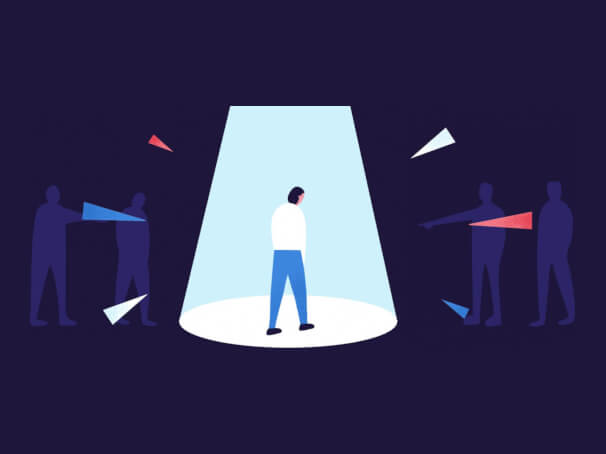
Aches and pains are a normal part of life. But when those aches and pains become very frequent and can’t be explained ]by exercise or injury, they can become intensely frustrating and distressing. Sore muscles are one of the effects of living with anxiety. This article will explore the causes and solutions for these types of sore muscles.
The Anxiety Caused By Anxiety Symptoms
Sore muscles are an example of an anxiety symptom that causes more anxiety. When you wake up sore and dealing with pain, you start to worry about the causes of that pain and how much it will impact your life. You're also less likely to be active and more likely to allow yourself to succumb to the stress.
That's why you need to stop your anxiety at its source if you want to gain control over your future stress and anxiety levels.
Causes of Sore Muscles
Anxiety may bring about several changes to our lives, some of which can contribute to the development of sore muscles. Examples include:
- Clenching and Tension The primary way that anxiety causes sore muscles is that it leads to significant muscle tension. During periods of anxiety, your brain puts your body into fight or flight mode, as though you're facing a life-threatening situation. When doing so, it tenses your muscles for rapid action, as in the case of, say, battling a predator. Over time, that tension and clenching can lead to tension and muscle aches that may become very painful if left untreated.
- Inactivity Physical activity is a crucial part of maintaining your mental health - more than many people realize. Stress may decrease the amount of physical activity that people are willing to engage in. Without movement or exercise, the muscles are weakened and deprived of a steady supply of blood, oxygen and nutrients. This, in turn, can lead to muscle pain.
- Postural Adjusting Stress can also cause you to shift, sit, or stand in ways that aren't necessarily healthy or comfortable for your body. Often, you're adjusting in order to reduce another symptom (such as sitting uncomfortably to reduce anxiety-related chest pains), and while you may get some relief, you're also putting strain on other muscle areas.
- Sleep Deprivation Anxiety and stress may also make it difficult to fall asleep. Sleep deprivation is known to increase muscle aches, because the muscles don't have time to heal properly as they usually would during the night. Sleep deprivation also leads to further stress, causing greater levels of tension.
These are some of the many explanations for why anxiety may create muscle tension, and ultimately sore muscles. Anxiety may also make you more attuned to how your muscles feel. In some cases, you may be experiencing normal soreness for the way you were sitting or standing, but anxiety causes you to feel as though the pain is extreme or caused by something more serious than just anxiety.
How to Address Muscle Soreness
Despite anxiety causing muscle soreness, these aches and pains can be treated the same way you would treat any normal aches and pains:
- Stretching Stretching each morning or before you go to sleep can be beneficial. When you warm up your muscles they become less likely to experience tension and aching.
- Water and Nutrients Eating healthily and drinking enough water nourish the muscles may enhance muscle tissue health and make it easier for you to relax physiologically.
- Exercise/Activity Exercise may cause sore muscles. However, the soreness is temporary and typically tends to happen less frequently as you exercise more and become fitter. Furthermore, exercise itself reduces stress, making it less likely that you’ll feel muscle pain in the long run.
- OTC Painkillers If painful muscles are causing serious distress, over the counter painkillers may be useful. Drugs like Tylenol provide the same relief to sore muscles from anxiety as they would to sore muscles from any other problem, because they reduce the inflammation that’s linked to aches and pains. However, always consult with a doctor or pharmacist before taking a medication.
- Massage Getting a massage may be a more enjoyable and relaxing way to work out muscle tension and pains. Many people find massages to be soothing in a way that other muscle treatments are not.
You should also do your best to avoid putting extra stress on your muscles. Do this by maintaining good posture, sleeping well, and getting up and moving once in a while if you've sat for too long. These are basic muscle-pain prevention strategies, but they are important for ensuring that the symptoms don't lead to more anxiety.
Preventing Anxiety-Related Muscle Soreness
All of the above tips only work when you're already sore. But what about strategies to prevent muscle soreness from occurring in the first place? For that, you need to address the anxiety that is causing your muscles to experience that much tension. Take steps today to treat your underlying anxiety in order to improve your quality of life.











